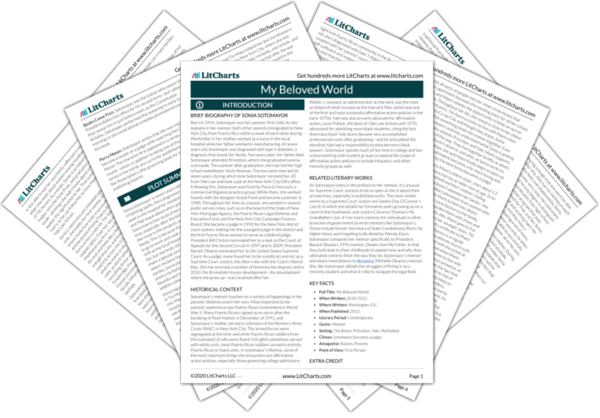For Sonia, the man on the mock jury doesn’t give her much useful information—mostly, he shows her that he’s racist and prejudicial. (And, ironically, Sonia isn’t even Jewish.) However, this man’s critique, in addition to Rudy’s, speaks to Sonia’s growing confidence, willingness to voice her opinion, openness with who she is. Even if others take offense to that, Sonia’s confidence will no doubt help her as she moves forward and becomes a lawyer.
